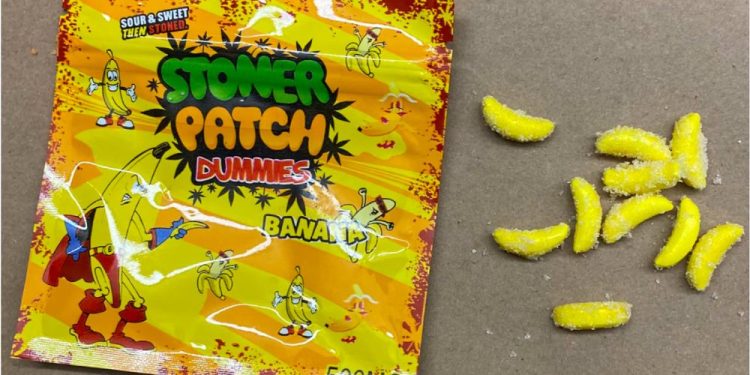A 53-year-old Salem man was sentenced to 12 years in jail on Tuesday for helping operate a multimillion-dollar marijuana drug trafficking operation that marketed butane hash oil and THC-infused candy and cereals in the United States and abroad.
Antonio Irving According to prosecutors, Benjamin and his accomplice infused and sprayed THC oils on legitimate brands of cereals and confectionery before marketing them in mimics that matched the recognized brands.
According to a federal affidavit, the colorful packaging featured legitimate product names, including Whoppers, Reese’s, Cocoa Puffs, and Rice Krispies. Federal agents seized pallets of the packing from the warehouse Benjamin supervised.
“Selling illegal THC and psilocybin products in this manner reflects a level of recklessness not usually observed in drug trafficking organizations,” Assistant US Attorneys Kemp Strickland and Christopher Cardani stated.
They claimed Benjamin was motivated by avarice, earning millions of dollars in profit.
He and co-defendant Jered Jeremiah Hayward used encrypted communications like Telegram to market, sell, and process orders, as well as straw firms to hide their narcotics trafficking profits, according to authorities.
Benjamin had no permits or licenses to manufacture or distribute these items, and the entire operation was illegal, according to authorities.
Search warrants issued at the warehouse and homes resulted in the recovery of more than $1 million in cash, $400,000 in bitcoin, $400,000 in gold and silver, 12 vehicles, boats, a Rolex watch, and other items, according to Strickland and Cardani.
According to reports, Benjamin purchased a property in Silverton with the earnings of the illegal narcotics activity.
Benjamin pled guilty in February to conspiracy to launder money and conspiracy to possess with intent to distribute 1,000 kg or more of marijuana.
Prosecutors recommended a somewhat harsher sentence of 14 years in prison, citing his 20 past convictions for felonies and misdemeanors such as fleeing police, car theft, violence, and possession of cocaine and fentanyl. According to authorities, he was designated as a career offender because of his two previous federal convictions for cocaine and fentanyl trafficking.
His “disregard for the law, court orders, and community safety is astounding,” Strickland and Cardani said in their sentencing brief.
C. Renee Manes, the defense lawyer, asked for a 10-year jail sentence, describing it as both substantial and sufficient. She also stated that her client agreed to relinquish assets totaling more than $2 million.
U.S. District Judge Amy Baggio imposed the 12-year term, followed by five years of supervised release.
In June, Baggio sentenced Hayward, whom prosecutors described as the operation’s mastermind, to 13 years in federal prison. It was Hayward’s fourth drug distribution conviction, and it occurred while he was under supervision following a federal fentanyl trafficking conviction in 2017.









